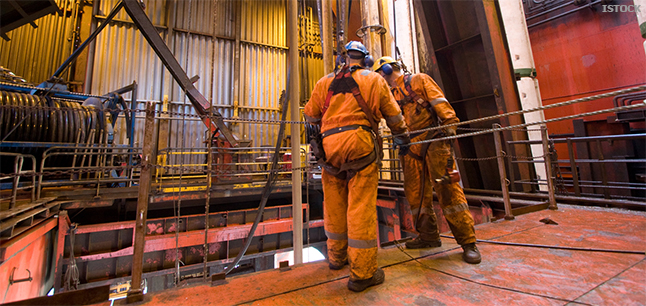
Roustabouts operate as manual workers in the oil and gas drilling sectors. They supervise various operations that guarantee oil and gas rigs’ safe and efficient functioning. Roustabouts often work long shifts of more than twelve hours; therefore, they must be physically strong and able to tolerate hours of hard labour.
Being a roustabout is often the entry point for personnel in the gas and oil industry.
Responsibilities
Throughout your apprenticeship, you may help:
- clean and maintain the drilling deck and equipment
- prepare drilling equipment between operations
- fit together casings, drill pipes and tubing
- check flow pipes for leaks and report them
- clear up spills
- mix chemicals used to protect the drilling equipment
- help technicians to repair pumps, drills and leaks
- operate lifting gear to unload and store supplies and equipment.
Salary
- Starting salaries for an apprentice is £18,000 per year.
- Experinced roustabouts can earn up to £30,000 per year.
Working hours
You will typically work 42 to 48 hours per week, working days, nights and weekends on shifts.
Working environment
You could work on a rig.
Your working environment may be physically demanding, outdoors in all weathers and at height.
You may need to wear protective clothing and safety clothing and use safety equipment.
Qualifications
Qualifications you can achieve as an apprentice roustabouts include:
- Level 2 Engineering Operative – Entry requirements for this level include some GCSEs, usually including English and maths, or equivalent, for an intermediate apprenticeship. This qualification will take 12 months to complete.
Skills
On a roustabouts apprenticeship, you’ll learn:
- the ability to work well with others
- to be thorough and pay attention to detail
- the ability to use, repair and maintain machines and tools
- problem-solving skills
- physical fitness and endurance
- patience and the ability to remain calm in stressful situations
- the ability to work well with your hands
- knowledge of public safety and security
- to be able to carry out basic tasks on a computer or hand-held device.
Career path and progression
With experience, you might become a crane operator or a roughneck on drilling operations.
You may become a derrickhand, driller, or commercial diver, mending underwater drill pipes with further training.
